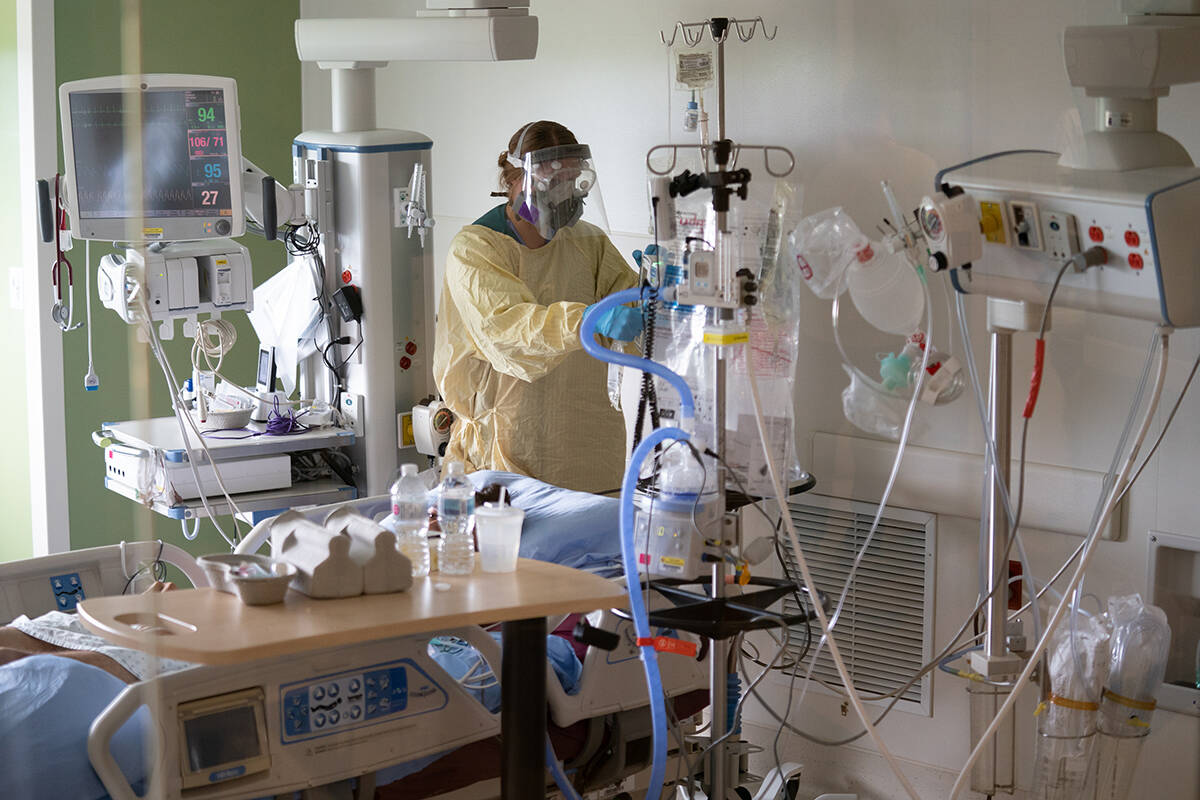The number of lung transplants performed in B.C. in recent years has more than doubled since 2014, with the man at the helm saying it could reach 60 by the end of December.
Dr. John Yee is the director of the BC Lung Transplant centre at Vancouver General Hospital, one of just four such facilities across the entire country and the only one in this province.
The number of lung transplants has grown from 24 in 2014 to 55 last year, which Yee said is because the awareness about registering to become an organ donor has risen in B.C.
“The demand increased, but our supply has also increased…. which is a testament to the generosity of the people in our province,” Yee told Black Press Media by phone.
“As a practitioner, I’m very grateful and and I think all the people who receive organ transplants, whether it’s a kidney, liver or in our case, lungs, all the patients are deeply grateful for the generosity of people who are willing to sign their donor cards.”
According to BC Transplant, the number of people who have registered as organ donors has increased by 69 per cent, from 922,779 in 2014 to nearly 1.6 million in 2020.
That’s been the driving force behind the increase behind the increase in lung transplants, Yee said.
“The demand is always there,” he said, adding that it always outstrips the supply – especially for organs such as lungs, where living donors are exceptionally rare.
“In general in British Columbia, there’s about 30 to 40 people waiting for lung transplant at any given time.”
READ MORE: Surrey lung recipient encourages organ donation, as he’s done
Yee said that there have been 53 lung transplants so far this year, including people with severe cystic fibrosis, emphysema and pulmonary fibrosis. Nine have been for COVID-19 patients for whom a new set of lungs has proven to be the only solution to a drawn-out battle with the virus.
Of those nine, eight were perfectly healthy prior to contracting the respiratory illness.
That’s partially because unlike for other organs such as kidneys where dialysis can be an option, there’s no long-term solution for individuals who need knew lungs.
“We don’t have a safe sort of option that has a reasonable quality of life,” Yee said, adding that with ICU-bound COVID patients, the “lungs basically do disintegrate.”
A lung transplant is not the first step; Yee said that over the course of a months-long battle with COVID, patients are first put on ventilators, which force oxygen into the lungs but no longer work when the organs get too “stiff and scarred.”
It’s then onto an ECMO machine. ECMO – which stands for extracorporeal membrane oxygenation – works by taking the patient’s blood out of their body, oxygenating it and then putting it back in, thereby removing the lungs from the equation.
But that is not a sustainable option, partially because it requires two to three staff providing 24-hour care.
“They’re heavily sedated and and they’re on maximum life support,” he said. “And when you’re on (ECMO) you can die at any given moment, because all you need is for that machine to fail or there to be a clot or to develop an infection or start bleeding.”
Yee said that lung donors can be difficult to find whether there’s a pandemic or not; blood type and organ size need to match up. But although COVID has added nine lung transplant patients to the list since April – who all became sick before vaccines were available to them – it has largely not changed the landscape, even though patients with the virus are usually so sick as to jump to the front of the line.
The transplant waitlist, Yee said, is not entirely first come first serve. The sickest patients, those who could survive the least amount of time without a transplant, are pushed to the top of the list. If patients are in the same condition, then the organs go to whoever has been waiting the longest.
But although the nine COVID transplant patients did push others down the list, Yee said it did not affect the survival rate of people waiting for new lungs.
“We look at something called deaths on the waitlist,” Yee said. “And over the last three years, the number of people who died on the waitlist has not changed – usually it’s only one or two people per year.”
But even as the pandemic begins to wind to a close, with vaccines widely available and new therapies on the horizon, Yee said that his message to British Columbians is the same: register to be an organ donor. In B.C., it’s easy. It can be done at an ICBC location, a ServiceBC office or online at: transplant.bc.ca/Pages/Register-your-Decision.aspx.
Yee said that it’s the nearly 1.6 million registered organ donors in B.C. that allow him and his team at Vancouver General Hospital to complete dozens of lung transplants each year. B.C. is one of just four provinces in the country to have a dedicated lung transplant centre.
Anyone who doesn’t live in B.C., Alberta, Quebec or Ontario must travel to a different provinces to get treatment.
READ MORE: B.C. man living a full, active life after double-lung transplant
c

